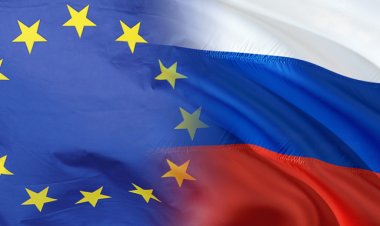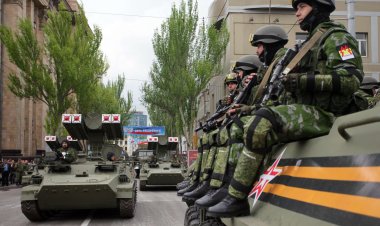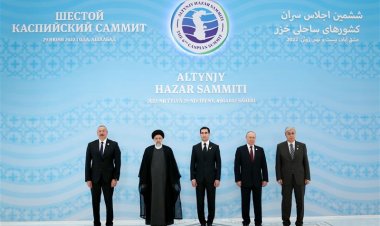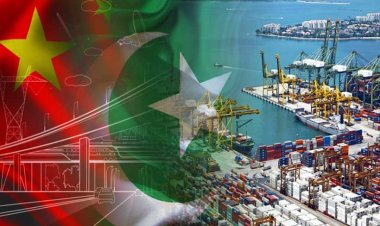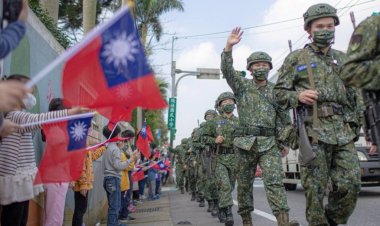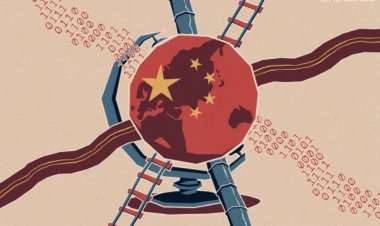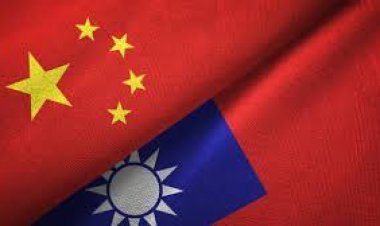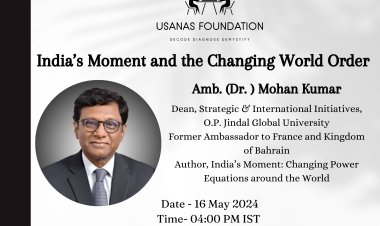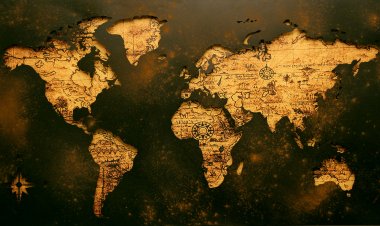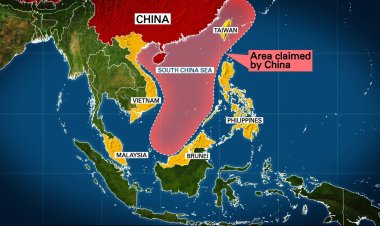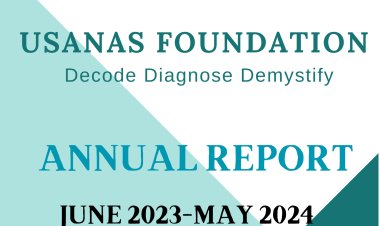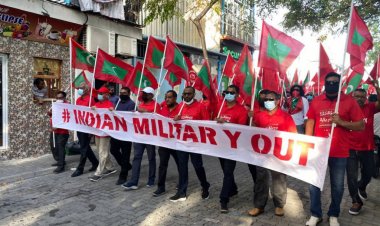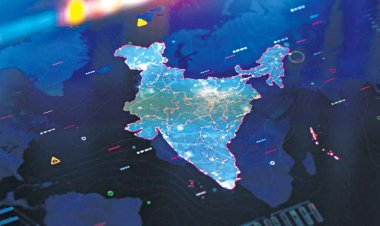How PM Modi's visit to Greece will help two civilisational consorts build strategic arc in eastern Mediterranean
The author discusses the strategic relationship between India and Greece. As the global churn intensifies, both India and Greece are increasingly looking at the convergences in maritime security, defence, and sustainable development
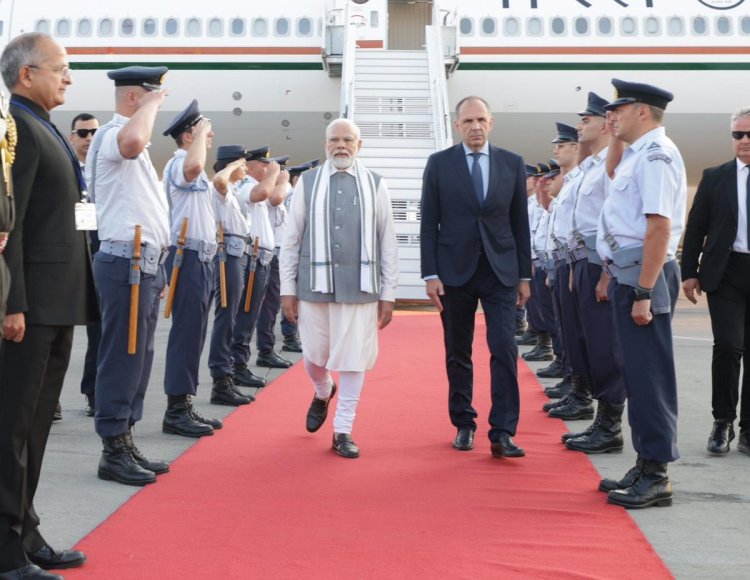
Analysis
By Amb. Anil Trigunayat
It is easy for the civilisational consorts to revive the flame of partnership effortlessly and move it into a strategic orbit underlined by mutually beneficial markers. India and Greece are no exception. Both have enjoyed a civilisational connect over the centuries that has been imbibed and enriched at the popular level. A certain curiosity and bonhomie exist. One of the markers of a good robust relationship is the high-level exchanges. There has been no dearth of such exchanges from Presidential to ministerial to institutionalised deliberations. Two Indian Presidents Dr APJ Abul kalam and Ram Nath Kovind (2018) paid state visits to Athens. Greek leaders also have visited India. Several important ministerial visits to Greece have taken place and the most recent one being that of External Affairs Minister Dr S Jaishankar (2021) albeit after 18 years but this was closely reciprocated by the Greek Foreign Minister Nikos Dendias (March 2022). Meetings of the Joint Economic Committee and foreign office consultations were held recently to iron out some of the MoUs/Agreements that might be signed during the visit. Very often these are precursors for high-level visits.
One of the key deficits has been the absence of a Prime Ministerial visit during the last four decades, like that to many other countries. Late PM Indira Gandhi visited in 1983. Therefore, Prime Minister Narendra Modi’s official visit to Greece (25 August) while returning from the BRICS Summit in South Africa is remarkable as it completes the critical circle even though he has met his Greek counterpart Prime Minister Kyriakos Mitsotakis a couple of times already. The visit is set to take the relationship to a much higher orbit of cooperation in the strategic domain. In his departure statement PM Modi underscored, “Our ties have been strengthened by shared values of democracy, rule of law and pluralism and cooperation in diverse sectors such as trade and investment, defence and cultural people to people contacts have been bringing our two countries closer together.”
As the global churn intensifies both India and Greece are increasingly looking at the convergences in maritime security, defence and sustainable development. Greece is an acknowledged shipping giant and is also an EU and NATO member. Both are geo-strategically located and prefer to work for regional and global security. India historically used to be a maritime nation and is a resident power in the Indian ocean and Greece is pivotal in the Eastern Mediterranean and both have congruence of views on maintaining and ensuring free and open and secured sea lanes of communications (SLOC) for trade and transit. Hence they can complete the arc from Indian Ocean to the eastern Mediterranean as part of the global good and welfare. Both India and Greece have excellent strategic ties with major countries in West Asia, especially with the Gulf Cooperation Council and with North African countries like Egypt and Libya, which complement their strategic operating spaces for mutual benefit. PM Modi was in Cairo this July, when the bilateral relationship was elevated to strategic partnership . Both also have a challenging relationship with Turkey whose leader will also be participating at the G20 Summit next month. But some strategic messaging is a given. Elevation of the relations to a formal strategic partnership level could be a good start.
While unveiling Greece’s new National Strategy for Extroversion Plan – 2021, Prime Minister Mitsotakis made a laudatory reference to India’s growth and economic policy underscoring the need for closer engagement . Make in India and Atmanirbhar Bharat also are of great interest to Greek investors and India Participated as ‘Honoured Country’ in the 84th Thessaloniki International Fair (TIF), the largest annual commercial exposition of Greece, and also the largest in Southeast Europe and the Balkans from 7-15 September 2019. High powered Indian business delegation was led by then Minister of State for Commerce Hardeep Singh Puri.
The “New India” Pavilion was inaugurated by the Prime Minister Kyriakos Mitsotakis who made a public statement that invitation to India to participate as “Honoured Country” was not by chance, but it represented Greece’s conscious policy decision to forge a robust economic, trade, and investment partnership with an economic power like India.
rade and economic potential at the moment is somewhat under-realised even though an upswing is noticeable in the past couple of years. Currently trade is hovering around $2 billion. India is the 5th largest and fastest growing major economy in the world bypassing the UK recently and is slated to be the 3rd largest by 2030 which will further enhance her global footprint. Greek economy has come out of the woods and is doing very well, emerging as one of the fastest in the EU. No wonder Several Indian companies are looking to explore infrastructure opportunities in Greece and the Greek magnates are eyeing Indian opportunities. Indian Multinational GMR and its JV partner has already won a €850 million construction project of a new airport at Kasteli in Crete Island, becoming the first-ever entry of an Indian company in Greece in recent years. New opportunities for strategic purposes are also being flagged. Ports in the north and south are being developed as energy hubs and for regional trade and transportation links. It is an opportune time for us to strengthen our relations with Greece at this juncture for mutual benefit. Proposals even to create a twinning partnership between Indian and Greek ports are being considered. Another major area of cooperation in the domain of energy security could be closer association with the Eastern Mediterranean Gas Forum (EMGF) . Even in the finance sector, like France, New Delhi might offer UPI to promote trade and tourism.
Defence cooperation has been reinforced and expanded since 1998, through high level visits, participation in military exercises, NDC (National Defence College) visits and exchanges. Only recently we had air and naval exercises. Indian COAS was expected to visit in recent times but he spoke virtually to follow up on key issues of mutual interest . Air Force Chiefs of both the countries have initiated reciprocal goodwill visits in recent months. Both also use Rafael fighters and find compelling reasons to collaborate in the defence matrix. Drone technologies and India’s Brahmos missiles have great potential for strategic cooperation. As such there is a robust Science and Technology cooperation between the two countries.
People-to-people engagement is often the key to a lasting relationship but we faced the illegal migration problem for quite some time and post various amnesty schemes and regularisation of their stay the enterprising Indians have emerged a major asset for the Greek industry and agriculture. Over 20,000 Indians are said to be present and working in the country. However, to address the emergence issues, both sides have signed a MOU on Migration and Mobility. PM Modi is also expected to meet the Indian diaspora and pay homage to the fallen soldiers during the World Wars.
Thus, the relationship is a well-rounded one with all requisite elements to enrich the collaborative partnership. While bilaterally both have several initiatives to follow which will be further strengthened and expanded during the visit of PM Modi perhaps a trilateral or quadrilateral format with Egypt, Israel and France may be able to craft more strategic choices for both after all they are strategic partners of India.
Disclaimer: This paper is the author's individual scholastic contribution and does not necessarily reflect the organization's viewpoint. The original article is here.
Amb. Anil Trigunayat is a former Indian Ambassador to Jordan, Libya and Malta and is a Distinguished Fellow at Vivekananda International Foundation and Advisory Board Member at Usanas Foundation.



